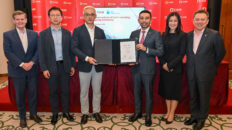Tariffs Prompt Strategic Shift to Domestic Markets
The survey reveals that 55% of Malaysian businesses are primarily concerned about rising costs linked to tariffs and shifting trade dynamics. As a response, 42% have already pivoted to focus more on domestic markets, aiming to reduce their reliance on international trade. Another 40% are planning to do the same, signaling a strong trend toward local customer prioritisation.
Inventory Builds to Buffer Supply Chain Shocks
With global logistics still under pressure, businesses are bolstering their inventory strategies. Currently, 37% of Malaysian companies have increased stock levels to hedge against supply disruptions, and 49% intend to follow suit. This highlights a strategic move to enhance resilience amid persistent trade volatility.
Optimism in International Growth Remains Strong
Despite global uncertainties, Malaysian firms remain notably positive about their future in international markets. A remarkable 91% express confidence in growing their international trade, surpassing the global average of 89%. Additionally, 73% say trade uncertainty has led to innovation and exploration of new opportunities, while 55% are actively seeking expert strategic guidance in areas such as international expansion and supply chain restructuring.
Realigning Trade Focus Toward Asia
As part of their evolving trade strategies, Malaysian businesses are intensifying connections with key regional partners:
- 61% aim to deepen trade ties with China
- 55% are looking toward South Asia
- 44% are targeting North Asia
Beyond the Asian region, 32% of Malaysian businesses are also focusing on Europe and the United States, especially in high-value sectors like electronics and semiconductors.
Innovation and Tech Adoption on the Rise
To maintain competitiveness and control operational costs, many Malaysian firms are embracing innovation:
- 64% have adopted new technologies or digital platforms
- 48% have introduced new products or services
- 57% are shifting growth efforts to domestic or regional markets
- 54% are streamlining operations and adjusting cost structures
Liquidity and Financial Tools Support Growth
Effective financial management is proving crucial during this transitional period. Businesses cited the following as the most supportive measures:
- 64% prefer enhanced cash and liquidity management
- 56% benefit from improved payment terms
- 55% value supply chain finance solutions
Adaptability and Partnership: The Way Forward
Dato’ Omar Siddiq, CEO and Head of Banking at HSBC Malaysia, acknowledged the adaptability of local businesses, noting the importance of strategic partnerships in uncertain times.

“Despite the challenges posed by the uncertain tariff and trade landscape, businesses in Malaysia are demonstrating resilience and adaptability in the way they operate. While supply chains may be further reconfigured, there continues to be strong potential for local companies to leverage on Malaysia’s strong trade ties particularly in Asia. Having said that, it is key to note that markets like the USA remain key trade destinations for Malaysia for high-value sectors such as electronics and semiconductors.”
“With over 70% of Malaysian businesses anticipating sustained cost increases from the impact of tariffs and trade uncertainty on the cost of doing business and businesses facing an average 18% drop in revenue, the imperative for strategic adaptation is clear. Despite uncertainties, the world is also full of opportunities. Navigating this climate requires not only agility, but strong partnerships to ensure sustained growth in a shifting global economy,” said Dato’ Omar.









